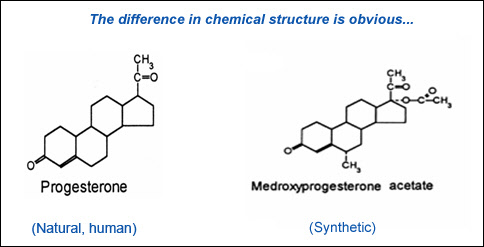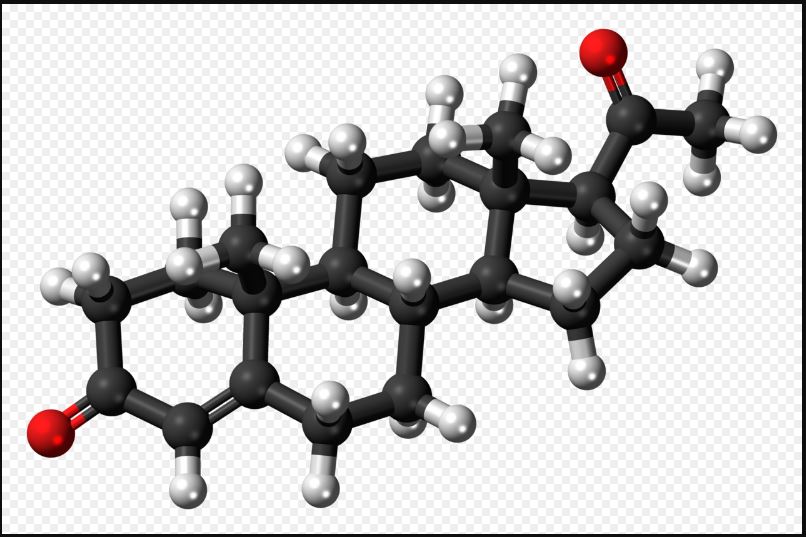Bioidentical Hormones vs. Synthetic Hormones
Now that more and more women are becoming educated on preventative medicine and anti-aging, the debate is heating up and the very bioidentical hormones that have been used safely for decades across the world are coming under fire in the US. Proponents of bioidentical hormones claim that they are safer than comparable synthetic and non human versions of Hormone Replacement Therapy. Of special concern is the fact that the FDA, big Pharma, state medical boards, and the media claim there is little or no evidence to support claims that bioidentical hormones are safer or more effective.
The term “bioidentical HRT” refers to the use of hormones that are exact copies of endogenous human hormones, including estriol, estradiol, and progesterone, as opposed to synthetic versions with different chemical structures or nonhuman versions, such as Conjugated Equine Estrogens. Bioidentical hormones are also often referred to as “natural hormones,” which can be confusing because bioidentical hormones are synthesized, while some estrogens from a natural source, such as equine urine, are not considered bioidentical because many of their components are foreign to the human body.
Women who had lost their quality of life because of Tubal Ligation Syndrome, hysterectomies, or hormone imbalances associated with aging, report getting their lives back with the use of bioidentical hormones. Many who complained of insomnia, weight gain, depression, memory problems, low libido, aging skin, were able to resolve these issues without anti-depressants, benzodiazapines, or sleeping pills. Those who discovered BHRT described a light bulb going back on and getting their lives back. So, if America is a free country, and a woman can choose whether she wants to use synthetic chemicals such as Prempro or Birth Control Pills, have an abortion, or use bioidentical hormones, why is she being denied the right to choose the latter? Why are physicians being threatened not to prescribe BHRT in the state of Louisiana and being forced to send their patients to Texas for treatment? Why are natural forms of Estriol being banned in America? It would appear that our governing bodies and the media are willing to sacrifice women’s health in the interest of protecting big pharma.

Just this morning, Dr. Nancy Snyderman, the medical commentator on the Today Show, instructed all menopausal women not to take any Hormone Replacement Therapy. She cited the very negative outcomes that was seen with the Women’s Health Initiative. This was a vast clinical trial involving more than 100K women and looked at the effect of estrogen and progestin therapy. The study was stopped when it was recognized that women taking Prempro were at a 25% increased risk of developing invasive breast cancer and heart disease. Snyderman went on to express concerns about all forms of Hormone Replacement Therapy including bio-identical hormone replacement because according to her there was “no evidence” to support the claim that they are safer than commonly used synthetic hormones.
Studies Show Bioidentical HRT to be Safe
In actuality, there are hundreds of studies showing the safety of bioidentical hormone replacement therapy which would make one question the honesty of Dr. Snyderman and why she would purposely withhold the truth from women. Furthermore, the US Food and Drug Administration (FDA) have ordered pharmacies to stop providing estriol, stating that it is a new, unapproved drug with unkown safety and effectiveness. This is the same FDA that has approved the use of synthetic birth control pills in 14 year olds to control acne and the use of the depo-provera shot for birth control in young women, which contains the same synthetic progestin as Prempro. Whose side are they on?

Nevertheless, estriol has been used for decades without reported safety concerns and is a component of medications approved for use worldwide. The FDA has acknowledged that it is unaware of any adverse events associated with the use of compounded medications containing estriol, and US Congress is considering a resolution (HR342) to reverse the FDA’s decision to restrict its use.
The definitive article on Bio-Identical Hormones versus Synthetic has been written by Kent Holtorf, MD published in Postgraduate Medicine, Volume 121, Issue 1, January 2009, which evaluates the evidence comparing bioidentical hormones, including progesterone, estradiol, and estriol, with the commonly used nonbioidentical versions of HRT for clinical efficacy, physiologic actions on breast tissue, and risks for breast cancer and cardiovascular disease.
Dr. Holtorf in his work did an exhaustive literature search and reviewed an array of Journal articles and published papers documenting human clinical studies, animal studies, and in vitro experimental work that compared bio-identical and non-bioidentical hormones as well as focusing on the physiological and biochemical aspects of the hormones.
Results showed that patients reported greater satisfaction with HRT’s that contain progesterone compared with those that contain a synthetic progestin. Bioidentical hormones have some distinctly different, potentially opposite, physiological effects compared with their synthetic counterparts, which have different chemical structures. Both physiological and clinical data have indicated that progesterone is associated with a diminished risk for breast cancer, compared with the increased risk associated with synthetic progestins. Estriol has some unique physiological effects, which differentiate it from estradiol, estrone, and conjugated equine estrogens. Estriol would be expected to carry less risk for breast cancer, although no randomized controlled trials have been documented. Synthetic progestins have a variety of negative cardiovascular effects, which may be avoided with progesterone.

Natural Progesterone
The effect of progesterone compared with Progestin, medroxyprogesterone acetate (MPA) included a 30% reduction in sleep problems, a 50% reduction in anxiety, a 60% reduction in depression, a 30% reduction in somatic symptoms, a 25% reduction in menstrual bleeding, a 40% reduction in cognitive difficulties, and a 30% improvement in sexual function. Overall, 65% of women felt that HRT combined with progesterone was better than the HRT combined with synthetic progestin, MPA.
In conclusion, physiological data and clinical outcomes demonstrate that bioidentical hormones are associated with lower risks, including lower risk of breast cancer and cardiovascular disease, and are more efficacious than their synthetic and animal derived counterparts. Until evidence is found to the contrary, bioidentical hormones remain the preferred method of HRT.
Pamela Egan, DNP, CDE
Doctor of Nursing Practice
MS, Metabolic & Nutritional Medicine
Fellow, Metabolic Medical Institute
MN, Gerontology Mental Health
Certified Diabetes Educator
She can be reached at 985-892-3031 or www.pamelaegan.com.



